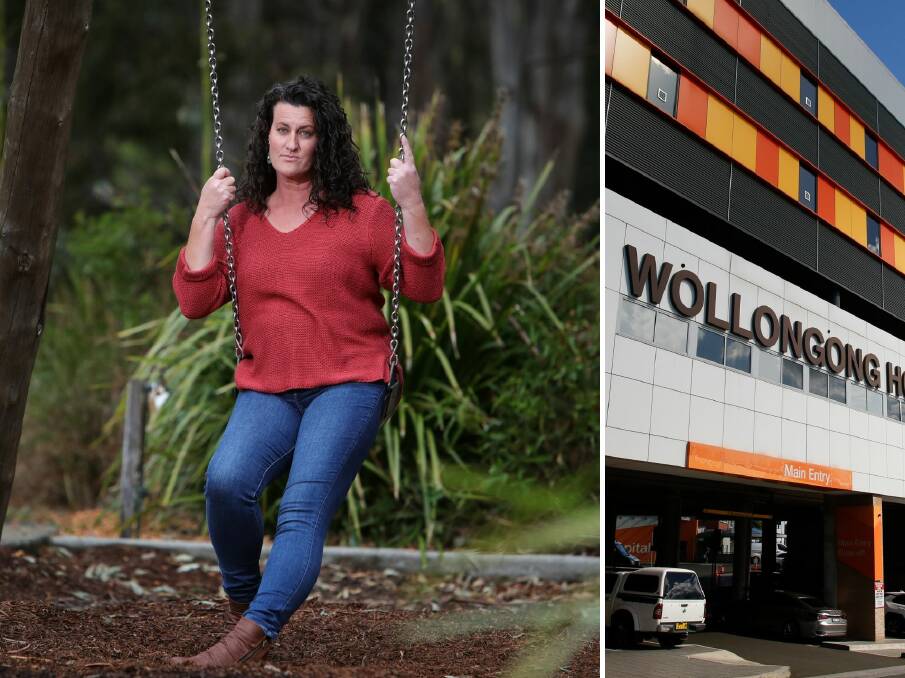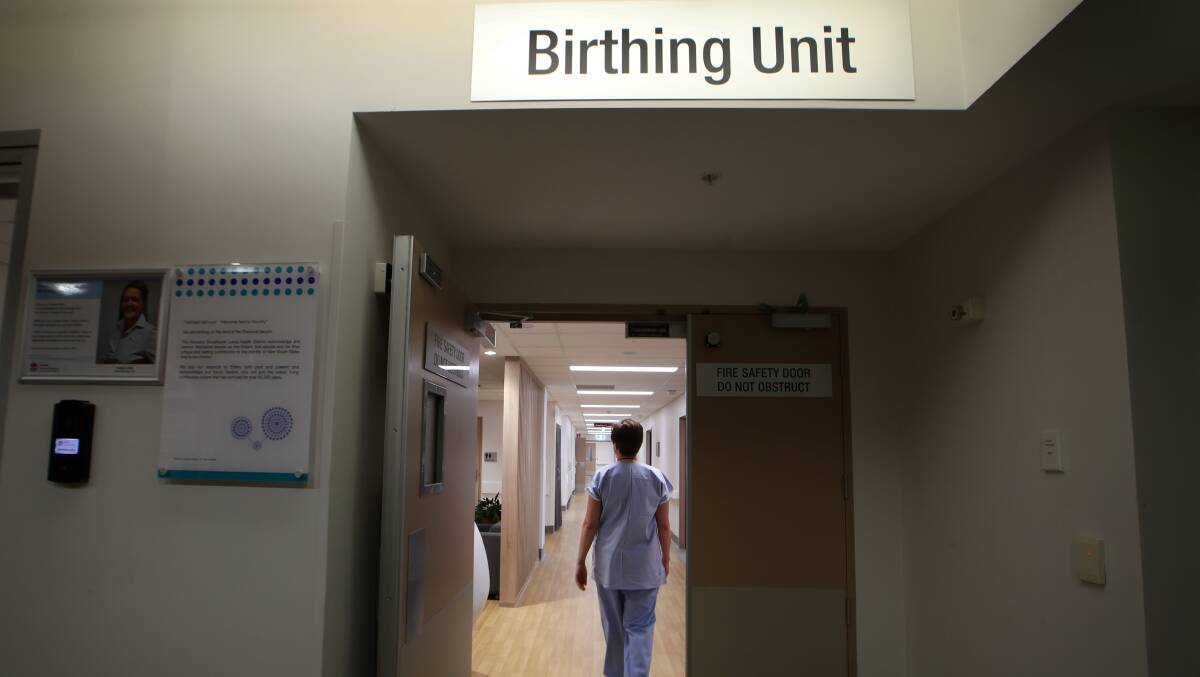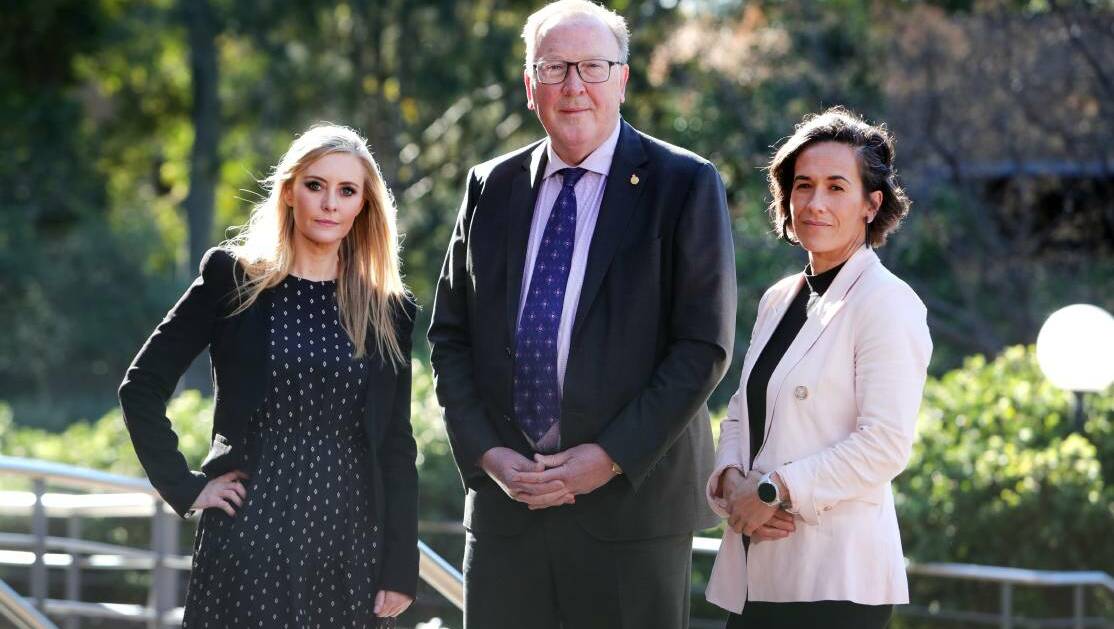An Illawarra woman who publicly shared her story of traumatic birth says it is sad but powerful that thousands of people have made submissions to the NSW Parliamentary Inquiry into birth trauma.
Subscribe now for unlimited access.
or signup to continue reading
Calderwood mum Lisbeth Legge, who spoke out about her experience in Wollongong Hopsital, commended the bravery of many others across the region, with about one in six of the 150 submissions published by August 17 coming from the Illawarra.
The inquiry, led by Animal Justice MLC Emma Hurst, will investigate the widespread issue, which research shows affects one in three people who give birth, focusing cases where maternity care providers compounded or contributed to trauma.
Many of the submissions already published on the inquiry website do not name a specific place or hospital, but 21 name Wollongong Hospital, two name Wollongong Private and one mentions Shoalhaven Hospital.
No other hospital features this many times, with Wagga Base Hospital - where the inquiry originated after 30 women banded together to share their experiences there - featuring eight times in the first 150 submissions.

In total, there have been 4270 submissions made to the inquiry which closed on August 15, however due to this high volume there will be a delay in their publication online.
Unlike most parliamentary inquiries, the majority of these have come from individuals - not advocacy groups.
There will be a hearing for the inquiry held in Wollongong on September 7.
Read our stories on the issue

Some of the Illawarra submissions - most of which have had the name of the person involved redacted - date back to the late 1990s, while others are from women who have given birth in recent months.
They relate to complicated births, being pushed into having an induction or caesarean or other unwanted procedure and the way women were spoken to by doctors or midwives.
Some of them detail horrific physical injuries which have lasted decades, while others describe psychological trauma which has led to depression, anxiety, suicidal thoughts and PTSD.
A number of the Wollongong submissions published so far mentioned that they did not get in to the hospital's midwifery group practice program, where women see the same midwives throughout their pregnancy and birth.

Submissions also make mention of the care received in the maternity ward after birth, referring to a lack of support and staffing issues.
Ms Legge, who is part of the advocacy group Better Births Illawarra, said she was not surprised by the large number of submissions.
However, she acknowledged the bravery and effort it would have taken for anyone to take the time to relive their trauma to make a contribution to the inquiry.
"To see the response that's come in with the volume of submissions, it's sad that there are so many people with these stories but the data tells us that one in three women have birth trauma and one in 10 are victims of obstetric violence," Ms Legge said.
"So we know those stories are out there, and the only way that anything is going to change is if we shine that light on it and get it noticed and try and change the birth culture in NSW."
NSW Health to make submission on 'safe maternity care'
The Mercury asked the Illawarra Health District about the high number of local submissions and was referred to NSW Health, which said it was in support of the inquiry.
A spokesperson said birth for many women was "positive and empowering however NSW Health acknowledges that some women may experience birth trauma".
"NSW Health welcomes the inquiry into birth trauma and is committed to improving maternity care for all women and families in NSW," a spokesperson said.
"NSW Health is planning to make a submission to the inquiry to provide an overview of the systems in place to support the provision of safe maternity care in NSW.
"It also outlines NSW Health's commitment to support the provision of culturally respectful, evidence-based and equitable maternity care."
"NSW Health is committed to listening to and learning from women about their experiences of maternity care and will be attending the inquiry."
Seeking support
If you feel distressed please contact one of the resources listed below:
- Lifeline 13 11 14 (24/7) or text 0477 13 11 14.
- Mental Health Line 1800 011 511.
- PANDA National Helpline (Monday to Saturday) 1300 726 306 or website. PANDA's National Perinatal Mental Health Helpline is Australia's only free national helpline for people affected by changes to their mental health and emotional wellbeing during the perinatal period. Support is available throughout pregnancy up until the baby is 12 months old.


